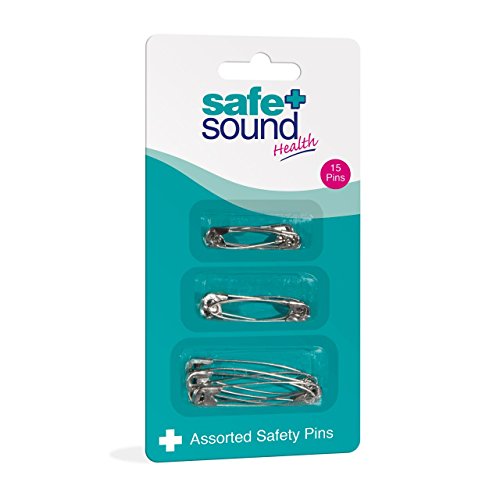Best Materials for Safety Pins
Safety pins are a versatile tool that can be used for a variety of purposes, from fastening clothing to attaching accessories. When it comes to safety pins, the material used can have a significant impact on their durability and functionality. In this article, we will explore the best materials for safety pins and the benefits they offer.
Stainless Steel Safety Pins
Stainless steel safety pins are widely considered to be the best option. Stainless steel is a strong and durable material that is resistant to rust and corrosion. This means that stainless steel safety pins will not easily break or become damaged, even with regular use. Additionally, stainless steel is hypoallergenic, making it a safe choice for individuals with sensitive skin. Stainless steel safety pins are available in different sizes, making them suitable for a wide range of applications.
Brass Safety Pins
Brass safety pins are another popular choice due to their strength and durability. Brass is an alloy composed of copper and zinc, which makes it highly resistant to corrosion. It is also a flexible material, allowing the safety pins to open and close easily. Brass safety pins are often used in situations where they will be exposed to moisture, such as when working in humid environments or participating in outdoor activities. However, it’s important to note that brass can cause skin discoloration in some individuals, so it is not suitable for those with sensitive skin.
Nickel-Plated Safety Pins
Nickel-plated safety pins are a cost-effective option that offers good durability. Nickel plating provides a layer of protection against corrosion, making the safety pins resistant to rust and tarnish. Nickel-plated safety pins are commonly used in the fashion industry and for general household purposes. However, it’s important to keep in mind that nickel can cause allergic reactions in some individuals, so it may not be suitable for those with nickel allergies or sensitive skin.
Plastic-Coated Safety Pins
Plastic-coated safety pins are a unique option that offers both functionality and aesthetics. The plastic coating provides a layer of protection against rust and corrosion, making the safety pins durable and long-lasting. Additionally, the plastic coating makes the safety pins more comfortable to use and reduces the risk of snagging or damaging fabrics. Plastic-coated safety pins are available in a variety of colors, making them a popular choice for crafting and decorative purposes.
Gold-Plated Safety Pins
For those looking for a more luxurious option, gold-plated safety pins are an excellent choice. Gold plating not only enhances the appearance of the safety pins but also provides an extra layer of protection against corrosion. Gold-plated safety pins are often used for special occasions, such as weddings or formal events, where a touch of elegance is desired. It’s important to note that gold-plated safety pins are typically more expensive than other options, so they may not be suitable for those on a tight budget.
In conclusion, when it comes to safety pins, there are a variety of materials to choose from. The best material for safety pins depends on factors such as durability, resistance to rust and corrosion, skin sensitivity, and personal preference. Stainless steel is widely regarded as the best material for safety pins due to its strength, durability, hypoallergenic properties, and availability in different sizes. However, brass, nickel-plated, plastic-coated, and gold-plated safety pins also offer their own advantages and can be suitable for different purposes and preferences.






